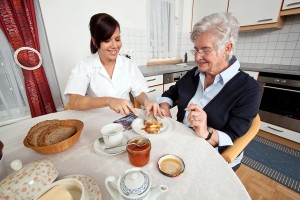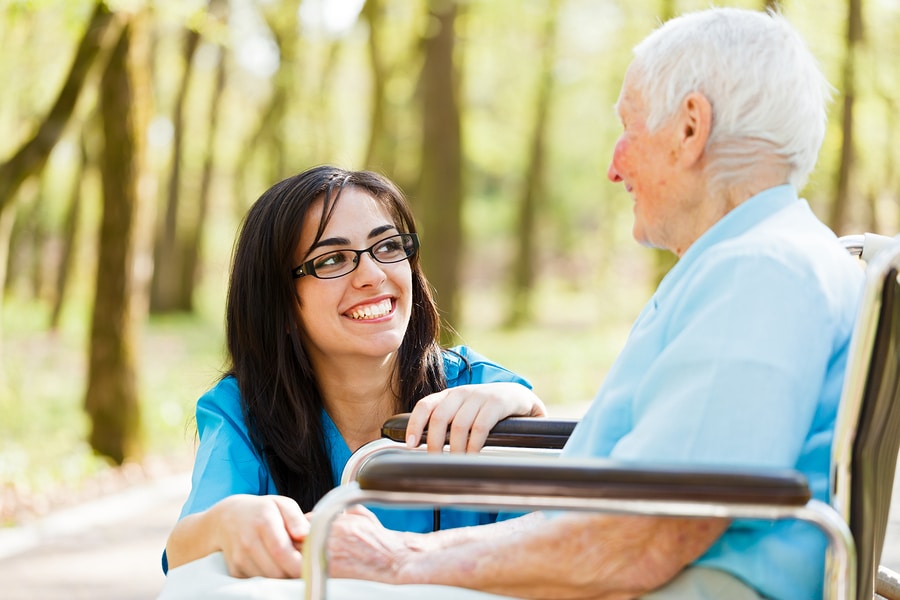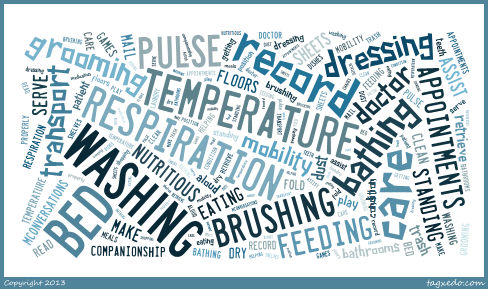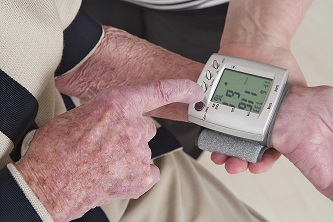Typical Home Health Aide Duties
The list of Home Health Aide duties can vary a lot depending on your client’s needs.
Working as a Home Health Aide (HHA), you might find yourself providing direct nursing care, you could also find yourself running various errands, taking care of household chores.
You may also provide much-needed companionship to your patients who may feel isolated because of their condition.
What Are the Typical Home Health Aide Duties?
Because the population in the United States is aging so rapidly and care for the elderly is in high demand, the duties of home health aides have greatly expanded and the job growth projection for HHAs is very high.
We discuss some of the most important next here.
Carrying Out the Doctor’s Orders
A vital thing to understand about HHA duties is that your job is to follow the doctor’s directions. This usually includes administering prescription drugs and oral medications according to written instructions from a physician.
Many of your patients may take multiple pills during the day, and it’s easy for them to get mixed up or take incorrect doses.
An HHA will make sure they adhere to the right schedule.
Other home health aide tasks can include changing dressing and helping them with simple physical exercises that will help them adjust to artificial limbs or recover from an injury.
Performing Household Duties

HHA duties can also include other types of light housekeeping, such as changing bed linens, running errands, cleaning, and doing laundry.
Many time your clients will be not be capable of doing these activities by themselves.
The help of an HHA having both medical knowledge and all-around skills to help those who need assistance with daily living is essential.
Personal Care
In some cases, home health aide tasks are extremely intimate. You may be helping people reach the toilet and shower, as well as helping them dress and groom themselves. But on top of that sort of care, you will be asked to provide a certain level of human interaction for patients.
You can read to them, play games, or simply engage them in conversation to keep them mentally alert and positive.
When you’re working with an injured or disabled person who has small children, you may also be involved in taking care of them and helping them understand their parent’s condition.
Documenting Their Condition
Home health aides may also accompany their patients to doctor’s appointments and communicate with medical professionals about their condition.
They also check a patient’s vitals, which can include measuring the heart rate, blood pressure, weight, and temperature.
They keep a record of a client’s progress, including any non-emergency problems or issues that arise that they need to discuss with a physician or case manager later.
The patient’s family will also be interested in your observations about their loved one’s health and well-being.
Being a successful HHA involves much more than being a home nurse. They become involved with their patient on a personal level in a variety of different ways.
Home health aide duties help those in need for all aspects of their daily life.
Interested in getting trained as a HHA? Check out our 5 tips to get started with HHA training here.






